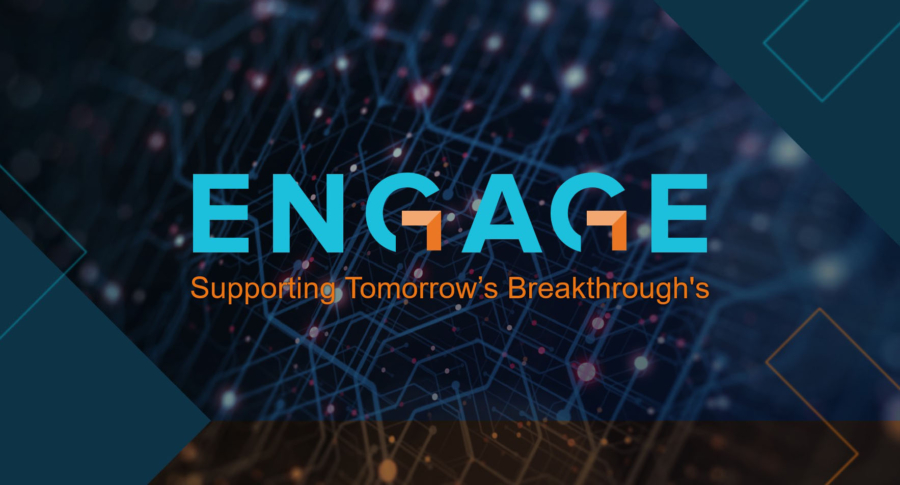
Advantages of Using Clinical Data Platforms to Insource SDTM
At the 2021 CDISC Technicon, eClinical’s Director of Data Engineering, Nathan Johnson, had the pleasure of presenting with Bob O’Connor, Associate Director, Clinical Data Systems at Agios Pharmaceuticals, on how the elluminate® platform supports high quality implementation of the CDISC standards. When Agios began using elluminate Mapper over four years ago, their goal was to develop an organizational data standard that could be applied across all studies within Agios. They wanted to develop fully-compliant, submission-worthy SDTM data sets in house, without relying on third-party providers.
elluminate is a clinical data platform designed to seamlessly integrate and unify all data sources. Clinical trial data sources are growing in complexity and variety, and elluminate provides tools to ingest, transform and analyze disparate data sources from a unified platform. With elluminate, data can be accessed by a wide variety of data consumers with unique needs in near real-time.
Benefits of Data Standardization
As data sources continue to proliferate, CROs, sponsors, and pharmaceutical companies are experiencing the benefits of data standardization at scale. These include:
- Optimization of downstream data flows, starting with data review.
- Ability to create standardized listings, visualizations, and patient profiles that can be deployed across studies with minimal reprogramming.
- Better organization and accessibility of data for quality control, allowing data managers to validate and find issues within raw data, which can help to avoid costly mistakes.
During the pandemic, Agios realized the benefits of data standardization for facilitating the development of ad-hoc reporting. As Bob explained, Agios was worried about the effects of the pandemic on compliance for key trials. They developed and tested a proof of concept with their data management and data scientist teams, and were able to quickly deploy it across all studies in the program with their existing standardized data structure. In the event of unforeseen challenges, a standardized data structure can allow rapid pinpointing of potential disruptions in clinical trials.
Agios has also experienced better and faster decision making, plus a reduction in timelines for deliverables. As Bob explains, “We’ve cut our database lock times in half and have also reduced costs. We now spend less time programming data review outputs from raw data from scratch, as we can apply them consistently across studies and compounds.”
Benefits of Insourcing SDTM
Using the elluminate mapper, Agios wanted to build an organizational data structure that would be also used to produce SDTM. They created a two-layer mapping approach, with their first layer as their organizational data sets — similar to SDTM Plus — which includes supplemental data sets that are useful for data review. Their second layer of mapping was their fully compliant SDTM data set, which is built by excluding all variables that are not a part of the SDTM standard to create a fully compliant main domain. They found two key benefits from using elluminate to facilitate a two-layer mapping approach:
- Both layers are using the same source, which means that there is never an issue with identification variables and values not matching between the main domain and the supplementary domain.
- All SDTM conformance mapping is done in that first layer of the organizational data structure. That means that they aren’t applying extra mapping to create the second layer; they are simply dropping unnecessary variables, saving them time.
For Agios, the benefits of insourcing SDTM are tremendous. They have been able to gain more control over their data to make any necessary changes instantly, including CRF modifications. They have also found that their data is higher quality, as they can validate, refine, and perform quality control as needed throughout the study. Issues can be discovered upfront, instead of waiting until the end of the project to pinpoint problems; this timeliness then leads to faster database lock time. Better quality control has also allowed them to ensure consistency and standardization across all trials and compounds.
Benefits of the elluminate Mapper for SDTM
Using the elluminate mapper has been critical in Agios’ effort to insource SDTM for clinical research. Some advantages include:
- Having CDISC metadata built into elluminate.
- Having control terminology built into the system, allowing users to directly map raw variable terms to the correct control terminology.
- The ability to easily check compliance as mapping is being completed. With the compliance checker, indicators for acquired and expected variables are clear, making it easy to ensure you have the necessary variables needed to start downstream activities.
- The graphical nature of the mapper, which shows users exactly how data is transformed. Users can address any potential issues and find exactly where to fix them simply by looking at the mapper.
- The ability to save mapping as XML files in the system, allowing for import into other studies and immediate access to the map domain.
Using elluminate mapper for their SDTM data has helped Agios save time when analyzing data, due to real-time results assessment and error generation. The SQL source code is also available for debugging when needed.
Improving SDTM with Clinical Data Platforms
With a unified platform and a single source of truth for all steps — from acquisition to analysis — clinical data platforms provide significant advantages for clinical trial providers. Increased access to data means that providers maintain control over data sources while promoting faster database lock time and quicker speed to market for drugs and therapies. Since Agios started using elluminate, they have integrated 12 different studies into the mapper tool with great success and tangible results. As clinical trial providers begin to prioritize proactive trial management, elluminate is key for any successful, modern data infrastructures.
If you’re interested in learning more about how Agios Pharmaceuticals has leveraged elluminate, read the case study “Lessons Learned from Implementing an Enterprise Clinical Data Cloud.”
By submitting, you agree to the processing of your personal data by eClinical Solutions as described in our Privacy Policy.







